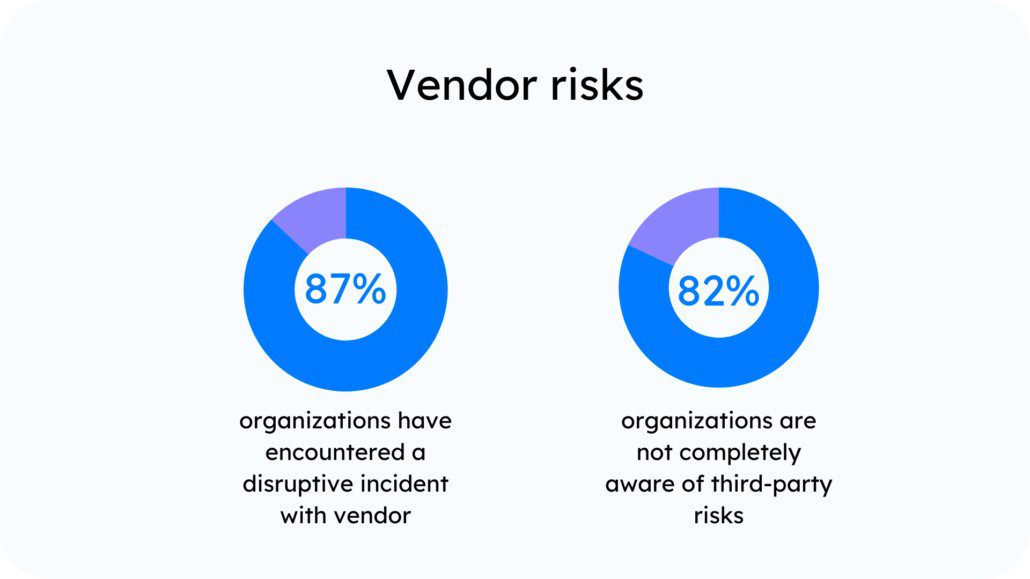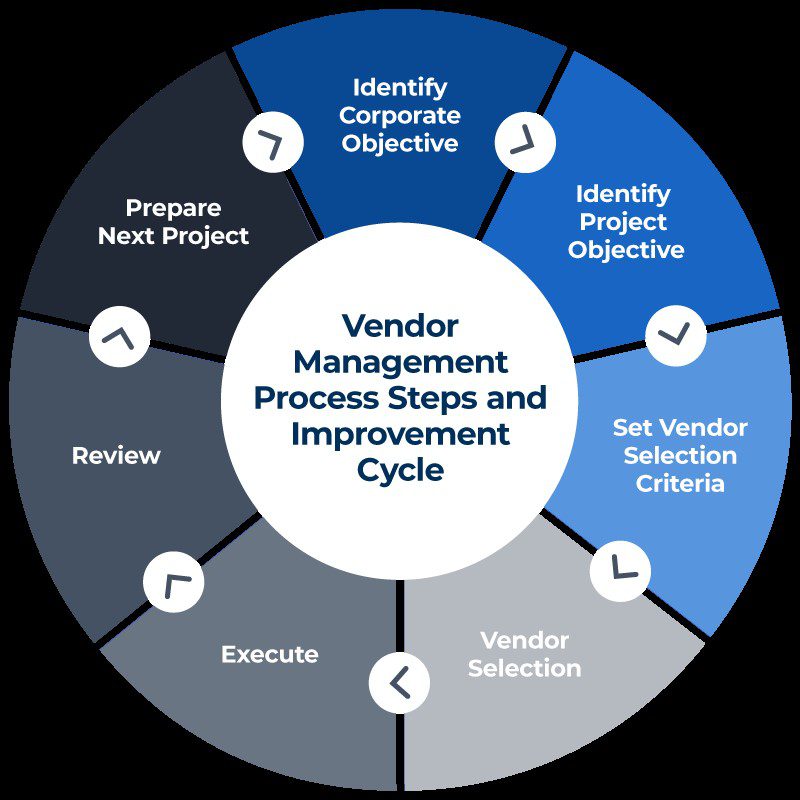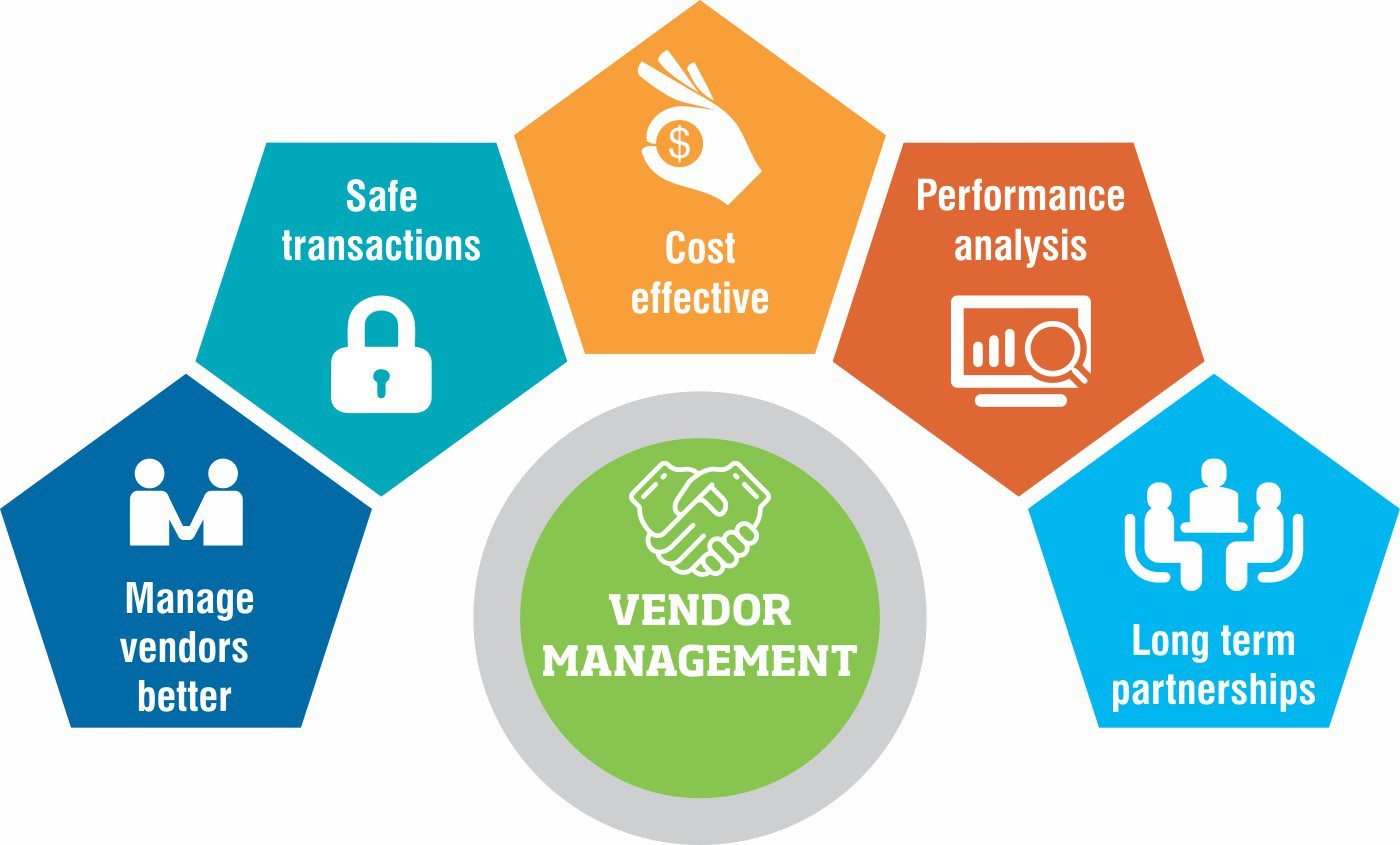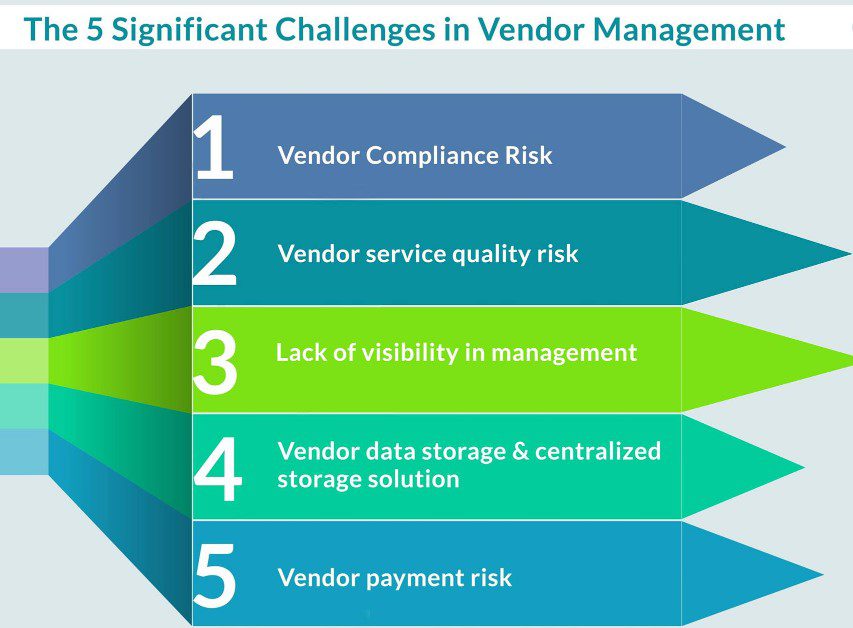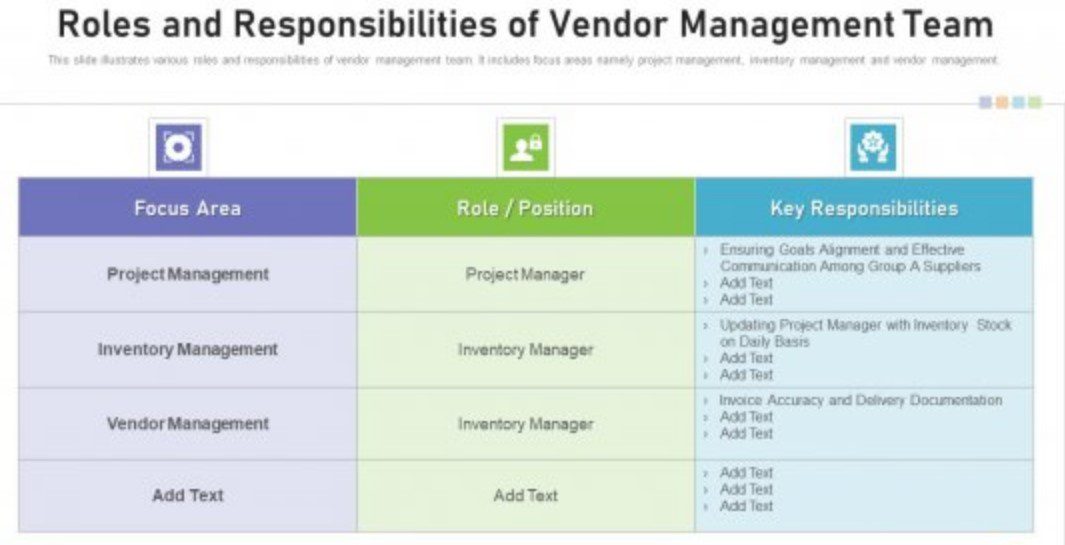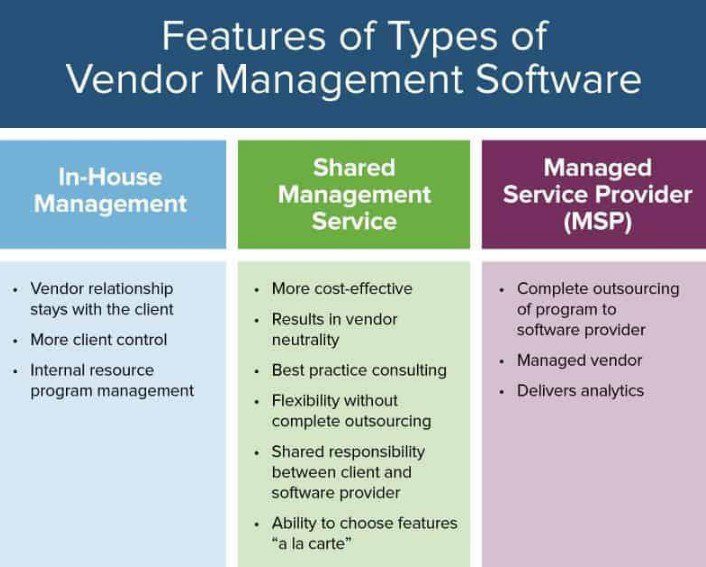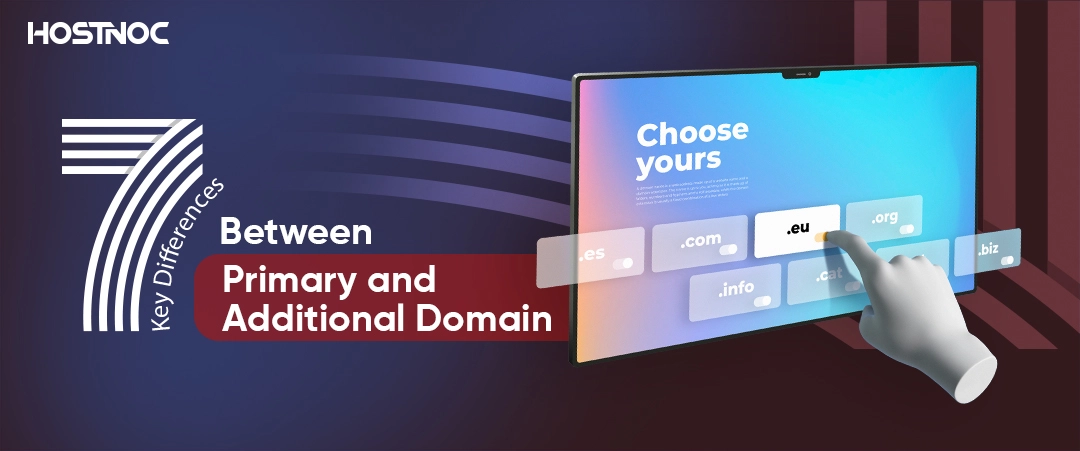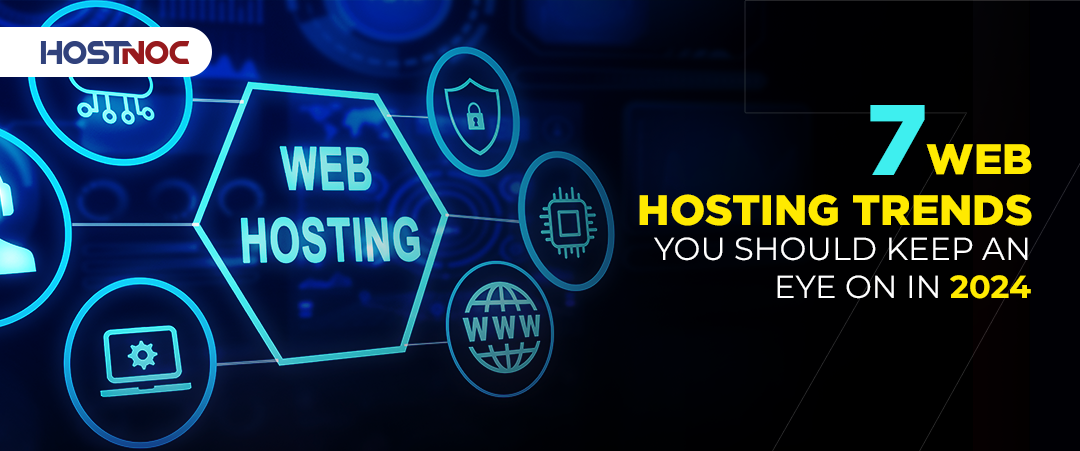Vendor Management: Ultimate Guide To Secure The Best Bargain
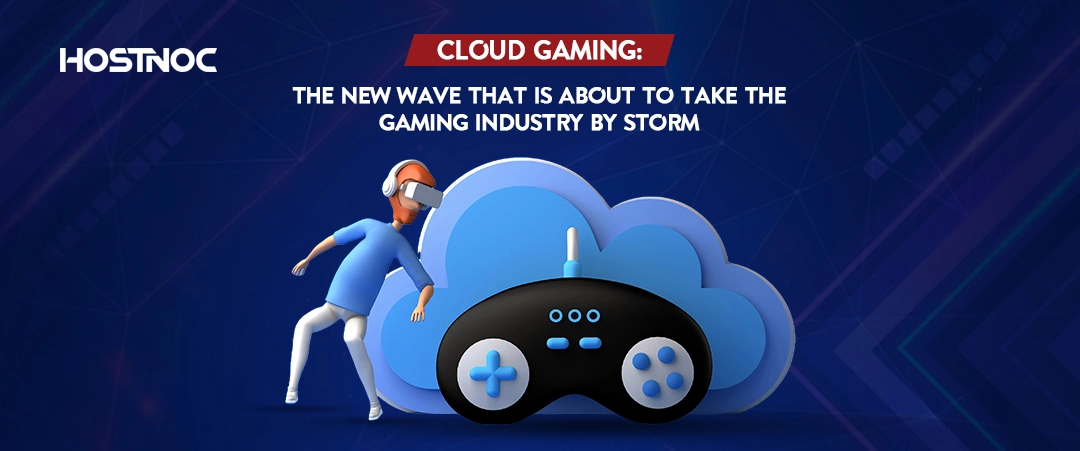
Cloud Gaming: The New Wave That Is About To Take The Gaming Industry By Storm
July 25, 2022
Bare Metal Server or Virtual Server: Which One Should You Choose and Why?
September 27, 2022According to vendor management statistics, 87% of businesses have had a disruptive incident with a third-party vendor within the last three years. 82% of organizations are not confident that they have identified all the third party risks. What’s even worse is that 74% of organizations are unaware of the vendors and third parties that handle their personally identifiable information. Only 40% of organizations have a mature vendor risk management process in place.
It does not end here. 60% of companies admit that they lack the resources to monitor the security and privacy practices followed by vendors and don’t even know who they share their information with. 23% of organizations don’t even monitor third parties.
That is why they usually become a victim of third-party attacks which are not only more costly but also cause more damage. In fact, each compromised record costs $13 more in a third-party data breach as compared to an in-house data breach.
In this article, you will learn everything you need to know about vendor management.
What is Vendor Management?
Vendor management is a process of managing vendor relationships. It encompasses everything from choosing the right vendors for your business, negotiating contracts, minimizing risks and costs and ensuring business continuity and service delivery. When selecting a vendor for your business, consider which vendors fulfill your business needs in the most effective manner.
Vendor Management Process
Here is a step by step process of vendor management.
-
-
- Identify business goals
- Create a vendor management team
- Outline the criteria for vendor selection
- Maintain a database of all vendor related information
- Developing contracts
- Hiring a vendor
-
Before you embark on the search for the right vendor, you should assess your business needs and goals. Next, designate a vendor management team and define the role and responsibilities of each individual in a team. Define a selection criteria on which you will evaluate each vendor.
This will help you narrow down your search. Collect as much information about the shortlisted vendors and store it in your database. Once you have finalized a vendor, now is the time to write down contract agreements. Make your vendor sign the contract to finalize the deal.
Advantages of Vendor Management
There are many advantages of efficient vendor management. Some of them are as follows:
-
-
- Better relationships with vendors.
- Ensures IT governance and compliance
- Mitigate vendor management risk
- Save money
- Performance management
-
Vendor Management Challenges
Vendor management also comes with its fair share of challenges.Some of the vendor management challenges for CIOs are:
-
-
- Lack of Visibility
- Failure to ensure compliance
- Payment Processing
- Vendor Reputation
- Data storage and management
-
One of the biggest vendor management challenges you might face during vendor management is lack of visibility. Your vendors might not give you full access to sensitive information. The vendor you have chosen might not have fulfilled the compliance requirements, which can make your business more vulnerable to cybersecurity attacks. Most vendors don’t even tell businesses which data they collect, access and store and how they do it.
Businesses are also unaware of the location of servers where their data is stored. The methods they use to process payments can also put your security at risk. Double check the reputation of a vendor before hiring them. Do some research, talk to their customer or read reviews where businesses have shared their experiences about that particular vendor. This will give you a better idea about their reputation and credibility.
Vendor Manager Job Description
If you are applying for vendor management jobs then, you are expected to perform the following tasks:
-
-
- Research vendors
- Manage vendor relationships
- Ability to map service delivery needs with business goals
- Develop and manage processes for vendor management
- Enforcing contract and ensuring contract renewals
- Ensuring compliance with your policies
-
Vendor Management Skills and Responsibilities
Vendor managers must have a solid technical knowledge and sound understanding of nitty gritties of how people, processes and technology work especially those which have been outsourced to a third party vendor. Apart from these hard skills, they should also have excellent soft skills which enables them to communicate with vendors and develop healthy relationships with them. Vendor managers should also be able to present a comparison between different vendors in front of board members to get their approval.
If your business deals with dozens of different vendors, you can consider creating a vendor management office (VMO) to manage relationships with vendors just like a project management office. This vendor management office will guide organziations throughout the vendor management lifecycle and enable IT leaders to be on top of vendor relationships. If your business only has a handful of vendors, you can hire a couple of people that will help you with vendor management. It depends on your business needs and varies from business to business.
Vendor Management Software
Managing dozens of different vendors manually can be a daunting challenge for businesses. That is where vendor management tools and software comes into play. These vendor management systems can not only help IT leaders but also assist vendor managers in managing everything from products, vendor management services, costs and contract details.
You can also generate and submit cost benefit analysis reports. Best of all, you can also find reviews and ratings of different vendors which can help you make the right decision with regards to vendor selection. Some even provide you with a list of preferred vendors. All this makes vendor selection a whole lot easier for businesses and saves a lot of their time and resources.
Vendor Management Certifications
Vendor management is a broad domain and you can only specialize in one specific domain at a time. There are many vendor management courses you can take to improve your skills. The same goes for vendor management certifications. If you want to specialize in vendor management risk assessment and mitigation then you should acquire Certified Third Party Risk Assessor and Certified Third Party Risk Professional certifications.
Those interested in contract management and relationship management should set their sights on the Supplier Relationship Management Certification Program or Supplier Relationship Management certification by the International Association for Contract and Commercial management.
How do you handle vendor management? Share your thoughts with us in the comments section below.

